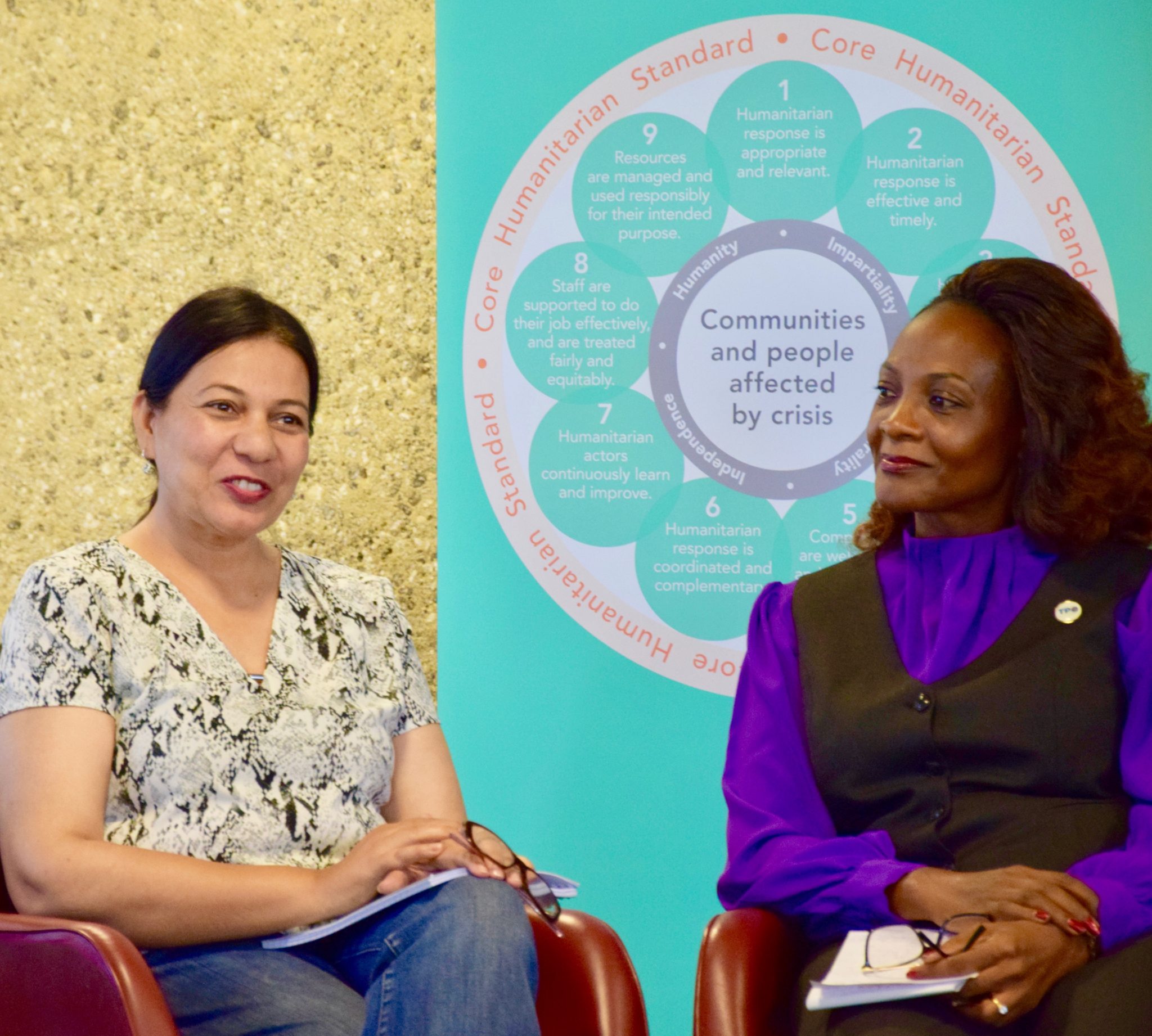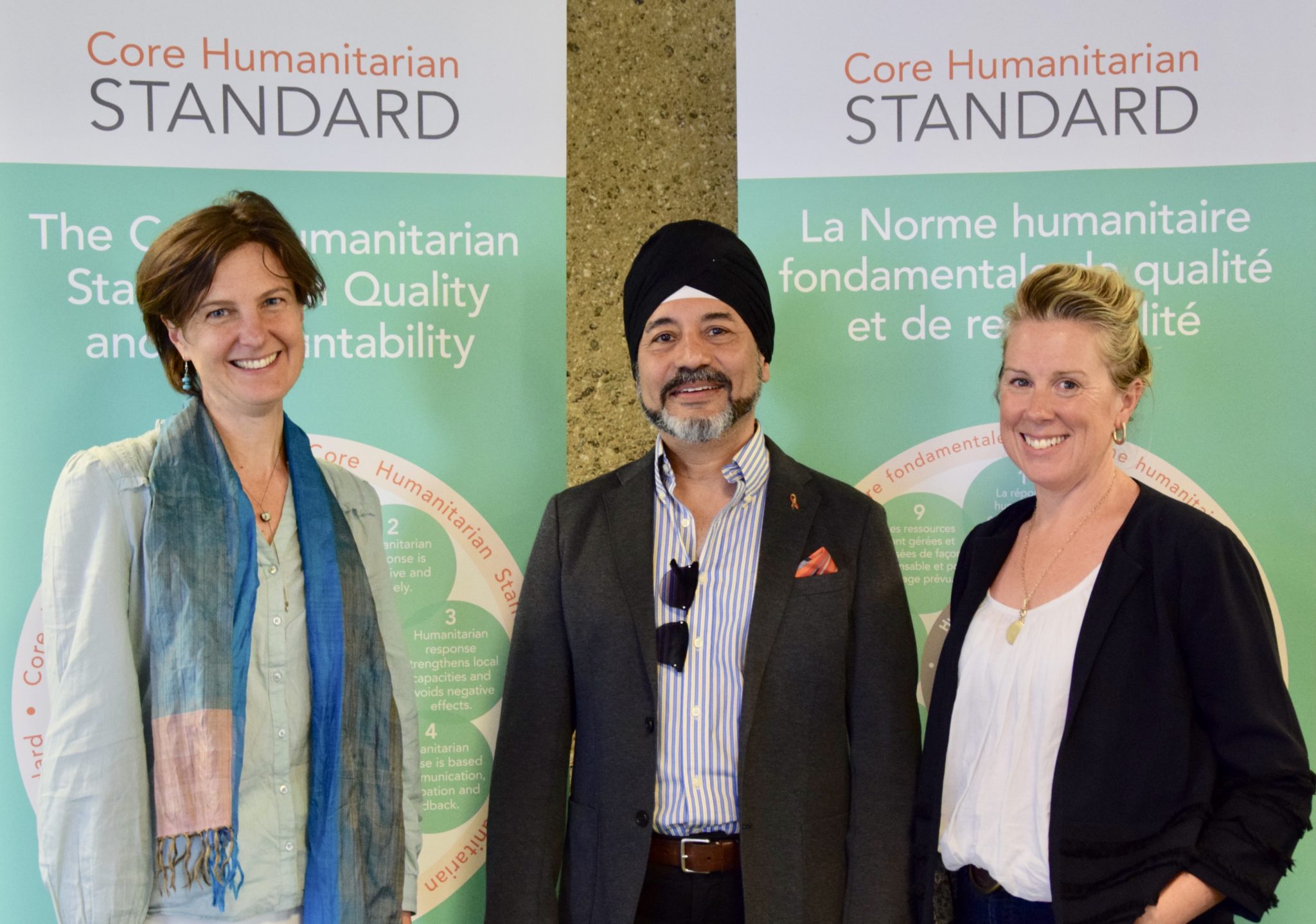Updating and improving our Commitments to people affected by crises – launch of the CHS Revision process
In May, as part of the Humanitarian Networks and Partnership Weeks, CHS Alliance, Sphere and Groupe URD officially launched a consultation process to update the CHS, with launch events in English, French, Arabic and Spanish.
For us as Revision Managers, this marks an exciting moment. Both of us were involved in the process that created the CHS more than seven years ago. The CHS Revision launch brought back memories of the work of hundreds and hundreds of people and organisations to craft a consensus around a common set of accountability commitments to people affected by crises.
Developing a core, universal standard meant discussions were often challenging, but always conducted in a spirit of cooperation and collaboration and driven by the shared goal of putting people at the centre of aid policies and programmes. The result was a simple but powerful set of commitments to people describing what they can expect from organisations, and the responsibilities of organisations to achieve this.
The CHS Revision process has now started. Together, we will work to reaffirm and reinforce the CHS’s core commitments to people affected by crises, We will ensure to keep and improve what works and adapt where needed. We will achieve this by initiating an open dialogue through different channels. We will listen carefully, collect feedback and inputs and facilitate dialogues.
May’s launch events mark the beginning of many frank and open conversations that will take place over the next 18 months. Through an open and transparent consultation process, we will hear what works well, what needs improving, and how to continue to leverage the Standard to drive improved performance and accountability in humanitarian and development work.

Ayesha and Rehema discussing the future of the CHS at the launch event on 12 May 2022.
We were very fortunate to have Ayesha Hassan, Associate Regional Director at Community World Service Asia (CWSA), Pakistan, and Rehema Kajungu, Deputy Director at TPO Uganda, as invited guests for the Geneva launch event. Both described their personal and organisational commitment to the CHS, and how it has transformed their ways of working.
Ayesha spoke of the value of having the CHS fully integrated into CWSA’s systems, processes, and procedures, from programmes and operations to finance and administration: “We were part of the process to develop the CHS. As an integrated core standard, it has helped us to ensure accountability is embedded across all our different working approaches.”
Rehema highlighted the value of the CHS. “Unlike other policies and commitments that, gather dust on a shelf, verifying how our organisation meets the CHS commitments has led to huge benefits for TPO. This includes transforming how staff and volunteers interact with people and communities and their work with partners, including donors. Using the CHS and verifying against it has given them confidence to take on a leadership role in Uganda on accountability issues. We are now called on by other organisations, including international organisations, to share our experiences using the CHS.” she said.
Both Ayesha and Rehema offered thoughtful considerations at the outset of the revision process. This includes making the language accessible to communities and local actors, simplifying how the CHS is presented, and addressing gaps and duplication.
As co-copyright holders of the Standard, CHS Alliance, Sphere and Groupe URD lead the CHS Revision process and are involving their members and networks. The CHS Steering Committee will provide guidance and advice on the revision scope and process. It is comprised of 12 individuals representing users and stakeholders of the Standard.

Leadership from the co-copyright holders at the launch of the CHS Revision.
Updating the CHS so that it is more accessible and relevant for affected people is no small task. Yes, we aim high. And we will not be able to do it without you. There is so much accumulated experience and wisdom gained from every person and organisations who has ever used the CHS over the last seven years. We are confident that together we will be able to strengthen the Standard and make it even more relevant in the future.
How to get involved:
- Catch up on recordings of the launch events in English, French Arabic or Spanish.
- Give us direct online feedback on the CHS through the interactive CHS Revision platform.
- Gather and share the views of people affected by crises on what they want and expect from organisations, and how they can hold us to account.
- Organise a consultation meeting with the CHS Revision managers.
For all the information on how to engage with the CHS Revision, visit: https://corehumanitarianstandard.org/chs-revision
